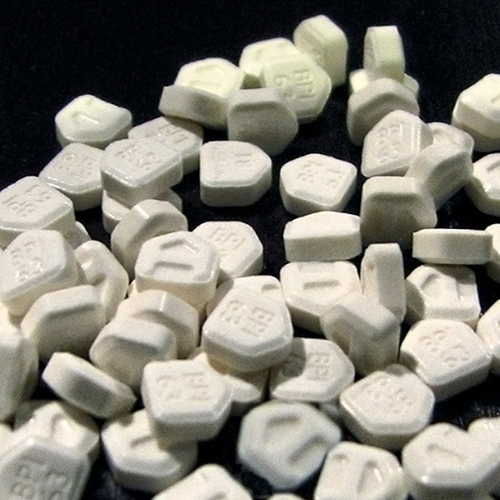

Ativan is the brand name for the drug known as lorazepam, which belongs to a class of drugs known as benzodiazepines. Ativan is prescribed by doctors to treat a variety of issues, including insomnia, epilepsy, nausea and vomiting caused by chemotherapy, anxiety, and even symptoms for alcohol withdrawal. This drug is ingested in the form of pills.
However, Ativan has a high potential for addiction and abuse. According to the Substance Abuse and Mental Health Services Administration, the number of treatment admissions for benzodiazepine tripled between 1998 to 2008. Overall treatment admissions only increased about 11%. In 2009, over 312,000 people visited an emergency department due to benzodiazepine use.
Symptoms of Ativan Addiction
Ativan acts by enhancing the effects of gamma-Aminobutyric acid (GABA), a neurotransmitter in the central nervous system that inhibits nerves transmissions in the brain to calm nervous activity, resulting in extreme relaxation and euphoria. Unfortunately, some users begin to crave that euphoria. After prolonged use, the brain may adjust by reducing the natural amounts of GABA or blocking its effects. This forces the user to continue to use Ativan to maintain normal levels.
Common Symptoms of Ativan Addiction
Mood swings; Slow reflexes; Tremors; Slurred speech; Memory problems; Tremors; Confusion; Someone abusing Ativan may also exhibit behavioral symptoms, including; Becoming drowsy, dizzy, and intoxicated when using Ativan; Taking more of the drug than their doctor prescribed; Becoming more talkative and sociable when using Ativan; Experiencing irritability or depression when coming down from a high
Ativan acts by enhancing the effects of gamma-Aminobutyric acid (GABA), a neurotransmitter in the central nervous system that inhibits nerves transmissions in the brain to calm nervous activity, resulting in extreme relaxation and euphoria. Unfortunately, some users begin to crave that euphoria. After prolonged use, the brain may adjust by reducing the natural amounts of GABA or blocking its effects. This forces the user to continue to use Ativan to maintain normal levels.
Perhaps the biggest sign of Ativan addiction is the length of use. Doctors generally will not prescribe Ativan for more than 4 months. Furthermore, Ativan is prescribed for specific problems. If a person is taking Ativan purely for its euphoric effects and not for its prescribed intent, they may have become addicted to it.
Ativan Withdrawal Symptoms
Seizures; Increased reaction to light, noise, or touch; Loss of appetite; Sleep problems; Nausea; Vomiting; Numbness or tingling in the extremities; Muscle pain; Rapid heartbeat; High fever; Short-term memory loss; Mood changes
Effects of Ativan Use
Ativan is most commonly used as an anti-anxiety medication as it is noted for slowing activity in the brain and creating sensations of calmness and relaxation. However, abusing the drug or taking it in high doses can lead to a variety of side effects, including:
- Dry mouth
- Nausea
- Diarrhea
- A change in appetite
- Constipation
- Drowsiness / Dizziness
- Fatigue
- Restlessness
- Blurry vision
- Frequent urinating or problems urinating
Dangers of Ativan Use
Although the general side effects of Ativan can be mild, long-term or improper use can cause a variety of dangers, including amnesia, hallucinations, and sudden strange behavior.
Those with depression may also suffer suicidal ideation. Those with compromised respiratory function should use caution as Ativan can slow down respiration.
Complications of Ativan Use
HIV; Hepatitis; Track marks; An increased risk of miscarriage; Infections leading to loss of limbs; Collapsed veins; Infection of the heart lining; Gastrointestinal problems (including cramping and constipation); Pneumonia and other pulmonary complications; Liver disease; Kidney disease; Overdose, which can lead to death; Depression leading to suicidal ideation; Aspirating vomit, causing infections in the lungs, choking, or death

Medical Intervention for Ativan Abuse
Medical Intervention
Treating any form of drug abuse involves a combination of medication and behavioral therapy. Medication corrects chemical imbalances caused by drug use and can help ease withdrawal symptoms, particularly cravings.
As Ativan may have a harmful rebound effect, especially in high dosages, many doctors will prescribe a slow tapering off. This is often coupled with a variety of therapies, including:
- Cognitive-behavioral therapy
- Group therapy
- Contingency management
As Ativan is often taken to treat anxiety, medical professionals will recommend co-occurring disorder treatment, wherein a user would undergo therapy for both their drug abuse and their anxiety.
RECOVERING FROM ATIVAN ADDICTION
Recovery
Ativan addiction treatment and detox plays a key role in your overall wellness and is a requirement for rehab. Many detox programs lead directly into longer 30-, 60-, or 90-day programs for your long-term health and sobriety. Having the support of trained medical staff as well as the medication needed to manage withdrawal symptoms is an essential part of getting on the road to recovery and preventing relapse.

How to Find the Right Ativan Detox Facility for You
Georgia Drug Detox is dedicated to helping you find and select a detox program that fits your personal needs and gets you on track for recovery. It is important to complete your detox surrounded by supportive professionals who specialize in treating your specific addition, not just addiction in general. Contact us today at (678) 771-6411 and we will walk you through the process today.

